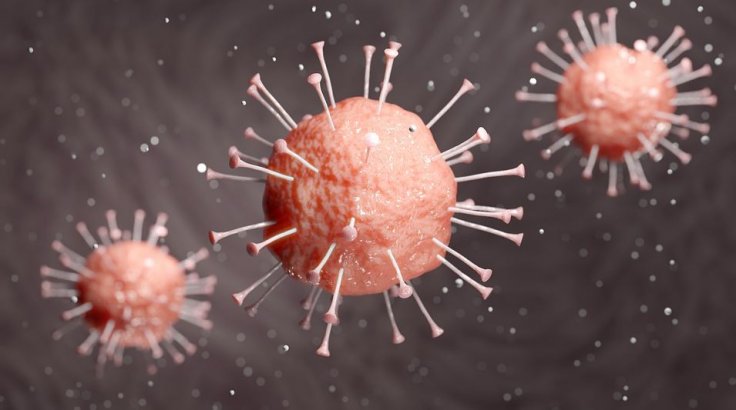Various developments in terms of Covid-19 vaccine were reported this week, one of them being the U.S. Food and Drug Administration's approval to the Pfizer-BioNTech vaccine. This is being seen as a ray of hope in curbing the surge of Covid-19.
But in contrast to this hope, the latest study has identified a new threat to those affected by Covid-19 in the form of 'shredder enzyme'. Here is how Covid-19 is forcing the protector enzyme to transform into a destructor.
Shredder enzyme is medically known as secreted phospholipase A2 Group IIA or sPLA2-IIA. The function of this enzyme is to protect the body from invaders including bacteria. It works by grabbing hold of specific fats in the microbes' membranes and shredding or tearing them apart.
Though human cells contain fat molecules, they are placed on the inner lining of the cell membranes and are safe from sPLA2-IIA attack. But this is not the case with those severely infected by Covid-19.

The sPLA2-IIA Attack
When affected by Covid-19, cells begin to die, exposing the fatty molecules. This results in sPLA2-IIA attacking the fatty molecules mistaking them as invaders. In addition, when a cell is damaged, they release mitochondria, which resembles bacteria in terms of their appearance [membrane structure]. sPLA2-IIA Immediately attacks them and shreds the membrane to pieces.
The contents of mitochondria are spilled into the body resulting in intense inflammation. Recovering from this condition is quite challenging, opine experts. The study was published in the journal EMBO Reports.
According to a research conducted by Floyd Chilton, a biochemist and director of the Precision Nutrition and Wellness Initiative at the University of Arizona and his team, a strong correlation was found between sPLA2-IIA and the risk of severe illness and death from Covid-19.
The team has stated that more research is needed in this regard before concluding that the enzyme directly causes the damage.
A study published on August 24 in the Journal of Clinical Investigation analyzed blood samples from 127 patients hospitalized. Out of them 90 patients were infected with Covid-19 and rest 37 served as a comparison group. Measuring the levels of more than 1,000 enzymes and metabolites in the patients' blood plasma showed that circulating levels of sPLA2-IIA reflected the severity of patients' disease.
The study concluded that the patients who died (30 people) of Covid-19 had fivefold higher sPLA2-IIA levels than those who managed to survive. In addition, those who died had nearly 10-fold higher sPLA2-IIA levels than those with mild Covid-19 infections or other illnesses.
Live Science reported that there are drugs to administer against sPLA2-IIA. But their effectiveness in dealing with dominant variants of SARS-CoV-2 including Delta is a matter of concern. This dominant variant has continued to cause concern as effectiveness of vaccine against Delta variant has been questioned again.
Vaccine Efficiency against Delta Drops
The Centres for Disease Control and Prevention (CDC) has found that Covid-19 vaccine's effectiveness has dropped by about 25 percent against the Delta variant. Vaccine efficiency has dropped from 91 percent to 66 percent. A report in the CDC journal Morbidity and Mortality Weekly Report (MMWR) was based on a study conducted on 4,000 healthcare workers in the United States.
The study is based on the condition of healthcare workers from Arizona, Florida, Minnesota, Oregon, Texas and Utah, observed between December 2020 and August 2021. The report claimed that 83 percent health workers were vaccinated - 66 percent were administered with Pfizer-BioNTech vaccine, 33 percent had received the Moderna vaccine and 2 percent had received the Johnson & Johnson vaccine.
Findings showed that vaccine effectiveness had declined after Delta became a dominant variant. The study also showed that immunity of those who were fully vaccinated waned with passage of time. According to another study (43,000 Covid-19 infections among L.A. residents) published in MMWR, unvaccinated people were at a higher risk of getting infected by Covid-19.
The study showed that 71.4 percent of infections were found among unvaccinated people, 25.3 percent of infections were among fully vaccinated people and 3.3 percent of infections were among partially vaccinated people, reported Live Science. The study concluded that unvaccinated people were five times more likely to be infected by Covid-19. Thus, though efficiency of vaccine, especially against Delta variant has dropped, vaccinated people showed better resistance to Covid-19 than those not vaccinated.









